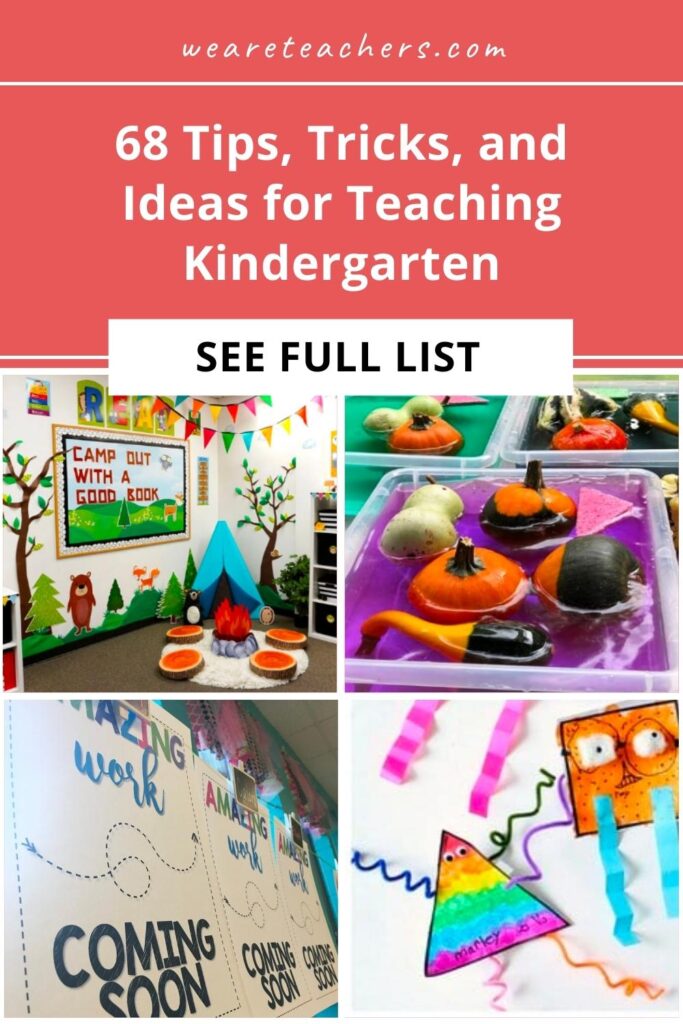Kindergarten teachers are magical people. It takes a special person to be able to manage the littlest students without breaking a sweat! Teaching kindergarten is also a special opportunity to introduce children to school and instill in them a love of learning. In honor of those of you who teach this grade, we’ve scoured our WeAreTeachers HELPLINE group on Facebook to bring you the best tips, tricks, and ideas for teaching kindergarten.
Getting Your Classroom Ready
1. Prepare yourself for kids with a wide range of skills
“Be ready for kids who are readers, kids who have never seen letters, and everything in between. I love my kinders dearly and find so much joy in watching their little light bulbs go on for the first time! They’re a different bunch to be sure, but they’re a blast!” —Maggie V.
2. Create an inviting classroom
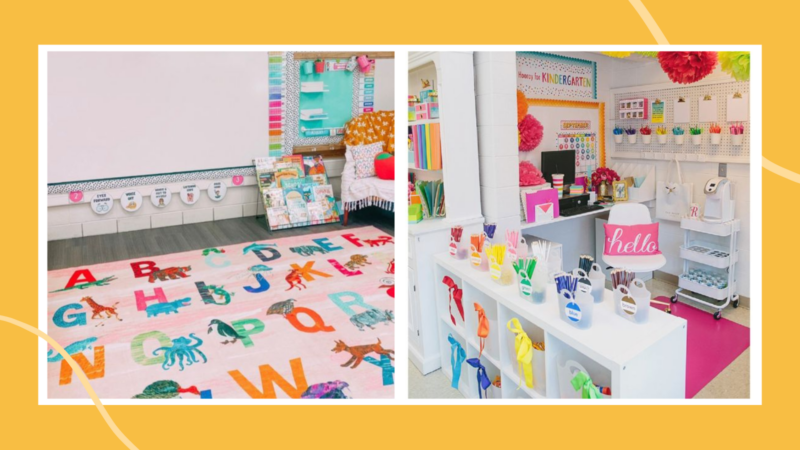
Need ideas? We’ve gathered real-life kindergarten classrooms for you to browse!
3. Integrate all of the tech

With so many teachers receiving new devices, make sure you’re using them fully as a normal part of your day. Check out some of Keri from Enchanted Kinder Garden’s favorite tech tools for a kindergarten classroom.
4. Be prepared for changes
The science of reading has been all the buzz lately. Are you aware of what it truly means for your classroom and your students? Check out this article to learn more about the science of reading.
5. Gather all the supplies
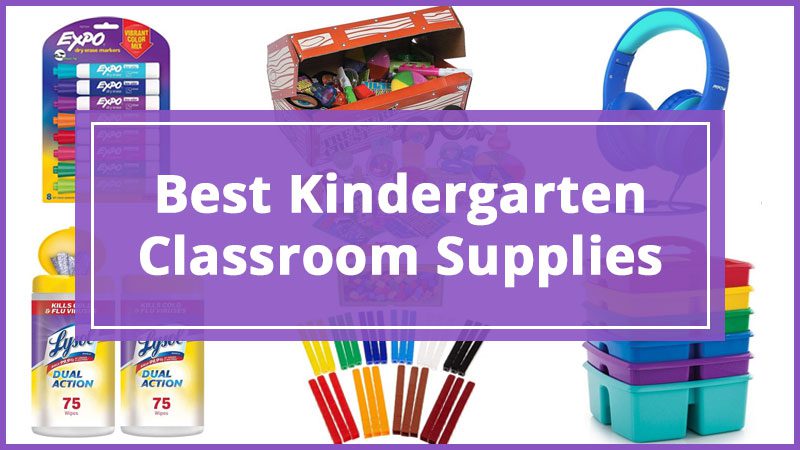
Not sure exactly what you need for the kindergarten classroom? Don’t worry, we’ve got you covered with this list of essential kindergarten classroom supplies.
6. Plan your circle time well

Make circle time short, sweet, and active. Incorporate these amazing carpet spots for easy seating.
7. Get a jump start on lessons
In kindergarten, teacher planning and prep time are precious. It makes life a lot easier when you can purchase existing lessons, bundles, books, and pages. And why not support other teachers while you do it? Check out our favorite Teacher Pay Teachers sellers.
8. Put together an irresistible classroom reading nook
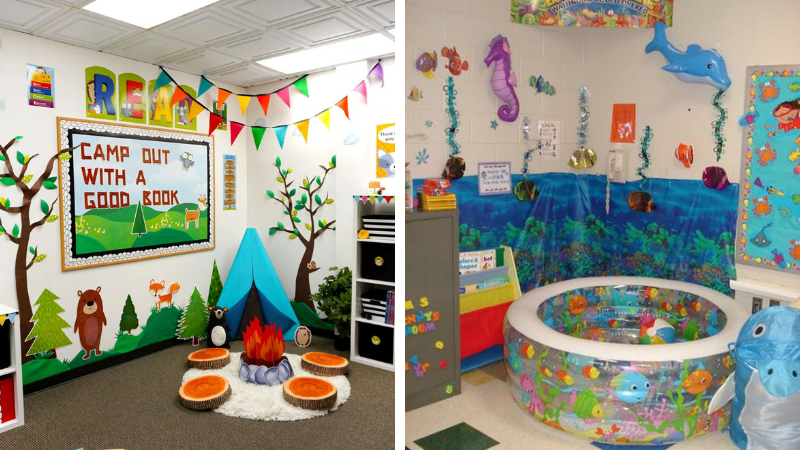
If there’s one thing you want your kindergartners to walk away with at the end of the year, it’s the message that reading is fun! Make reading time extra special for them by setting up one of these awesome reading nooks.
9. Fill your classroom library with these classic kindergarten books
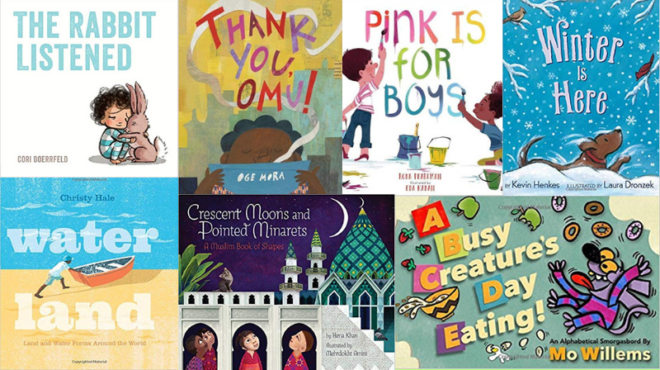
Here are our favorite books for teaching kindergarten.
10. Set up sensory tables
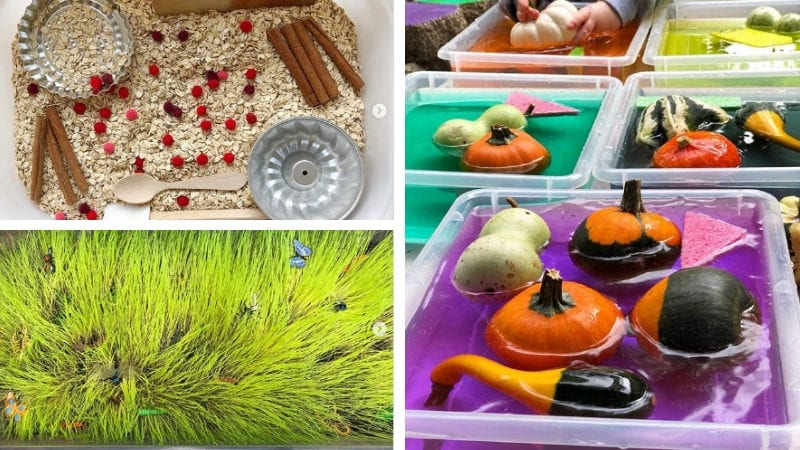
Early childhood teachers know that hands-on learning is essential. Sensory play encourages open-ended thinking, language development, and collaboration and builds fine motor skills. Sensory materials are magically both engaging and calming. Here are our favorites!
11. Set up a writing area

Writing is so important for our early learners. Even when students are just learning to write, it’s important to encourage the process. Having a dedicated writing time helps shift a child’s focus. Some classrooms even have a dedicated space for writing. Here is an easy setup for a writing center.
12. Create a scavenger hunt for Meet the Teacher
As you prepare to meet your brand-new students, think of inviting ideas for both parents and students. A scavenger hunt around the room to complete forms, sign up for things, and explore the room helps to move families around the classroom as you introduce yourself.
13. Make room for student work
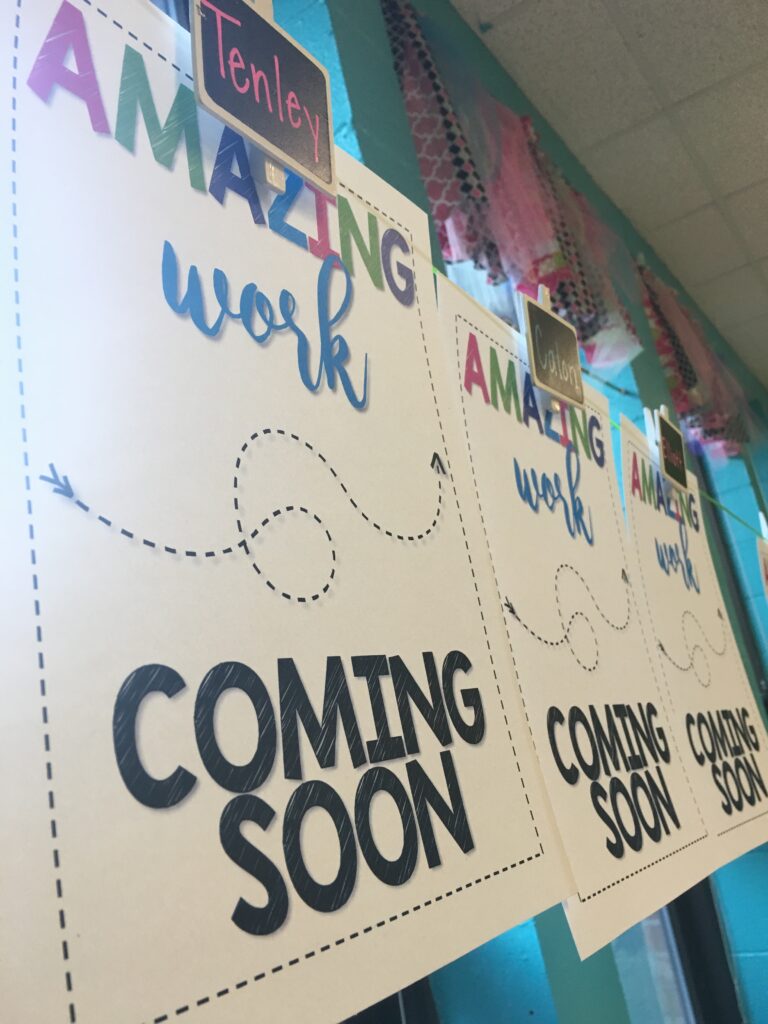
Even though your students haven’t had time to come into the classroom yet, make sure there are spaces and places to display student work. You want the classroom to be a shared space. With that art and work proudly displayed, they will feel a connection with the room.
The First Days of School
14. Keep in mind that kids have expectations too
“Kids go to their first day of kindergarten expecting to learn how to read that very day. So you have to do some choral reading of big books or poems so that they know that they have begun to learn to read. Just one big book. Read it many times that day. If they go home seeing themselves as scholars on the first day of school, you will have set the tone for the whole year.” —Becky N.
15. Help the parents of your students on the first day because it’s a tough transition for them too
“You will have a room full of parents on the first day, so to have a smooth goodbye, I wrap a box with Kinder Bear (any stuffed bear) inside. After the kids are sitting on the carpet, I tell them that I have a friend I’d like them to meet, but that he’s shy. I pretend to listen to the bear and tell the kids he wants you to say bye to Mom & Dad so he can come out and play. The parents will ‘get’ the message and leave, and the students will be eager to meet Kinder Bear!” —Denise B.
16. Start at the very beginning
“Don’t assume they know how to do anything. Teach them everything. How to knock at the bathroom door, how to close it behind them, how to wash hands, throw away towels … routines, routines, routines.” —Shannon T.
17. Keep in mind how close to “baby” your students really are
“Remember, they are 60-month-olds! That always gives me perspective the first few weeks teaching kindergarten.” —Michelle K.
18. Label your classroom
As soon as you get your class list, add your students’ names to their areas in the classroom. This may include tables or desks, book bins, cubbies, and even pencil pouches. Allow them to take ownership of the things that they will need to take care of over the school year.
19. Choose amazing read-alouds for the first week of school

Go ahead and “add to cart” on Amazon to get first-week read-alouds and back-to-school books they’ll love.
20. Make keepsake drawings that will show growth from the beginning of the year
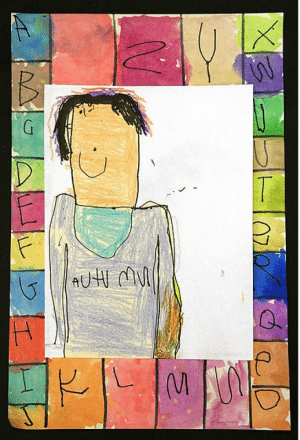
“I would have them do a self-portrait the first day and then another one the last week and look at the difference! You will want to start and demo one of yourself just to give them an idea of what to do. You might be surprised at the results, and your parents will save it forever—mine did. I still have one I drew as a kinder or first grader.” —Julia A.
Here’s a fund self-portrait art project from Splish Splash Splatter.
21. Start the year with firm expectations and clear routines
“Don’t worry about the curriculum. Just focus on the routines and rules. One of the best bits of advice I got from a professor was that the kids WANT to love you so don’t be afraid to be strict with the rules and set down your boundaries right out of the gate. I’ve been teaching for 20 years, and I learned that the hard way. Have fun, play games, let them see your playful side, but take the time to let them know what is expected of them.” —Julie S.
Check out these first-day routines and procedures for more ideas!
22. Teach kids exactly how to listen

Don’t expect that they will come to you knowing what listening looks like. Here’s how to teach them.
23. Introduce classroom callbacks
As you teach classroom expectations, routines, and procedures, do not forget to introduce callbacks. Teach your students three or four ways to stop, look, and listen. This can be done with hand motions, responses, and more. One of my favorite ways is when I say “Macaroni and Cheese,” they all say “Everybody Freeze!” They also place their hands on top of their head. This allows them to put down whatever they are touching or using and put their attention on me. It’s one of the quickest callbacks to teach.
24. Add fun to your center rotations
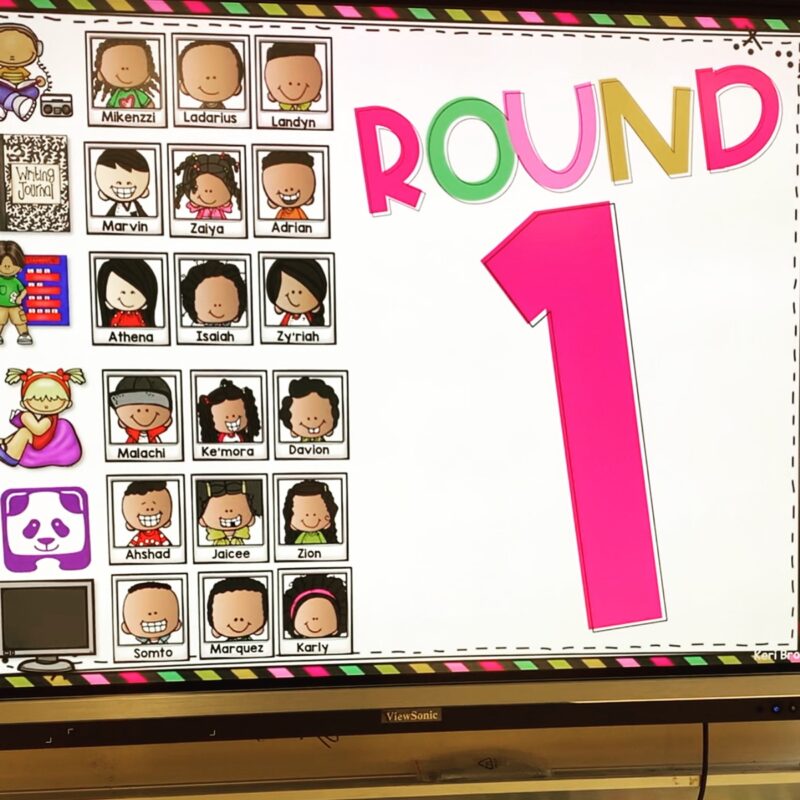
Engage students with captivating videos and eliminate the need for internet access. Seamlessly manage digital rotations with built-in timers, creating a personalized and efficient learning environment. With everything you need in a digital presentation, you’re ready to rock and roll through your day in style.
Check out these center rotation ideas from Enchanted Kinder Garden.
25. Teach kids how to make friends
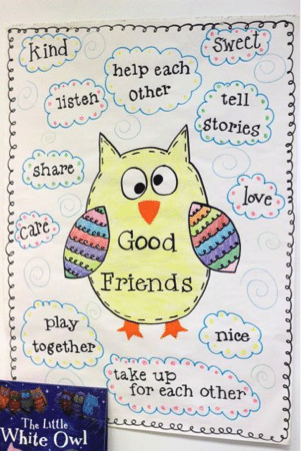
Some of your students will make friends naturally, while some will need your help. How to be a friend is one of the most important lessons they can leave their first year of school with. Here’s an activity you can do to help them.
26. Find fun ways to teach all of the routines your little ones will need to know all year long
“For my lines in the hallway, I say ‘There’s a cloud with marshmallows falling down (wiggle fingers like they’re falling from above), everyone catch a marshmallow!’ Pretend to catch and say, ‘now put it in your mouth and chew chew chew chew and keep your finger on your lips so it doesn’t fall out’ until you get to the cafeteria, playground, etc. They’ll walk around with their cheeks puffed up pretending to chew. Some might say they ate it, so tell them to catch another or it’s too big to eat the whole thing so keep chewing! I’ve heard teachers say ‘catch a bubble.’ It’s the same concept. When I need instant silence, I say, ‘Catch a marshmallow!’ and there is quiet immediately.” —Heikel F.
Here is our list of must-teach classroom routines and procedures.
27. Take your class on a mini-adventure on the first day
“I teach routines and rules, but I also go on some kind of ‘adventure.’ My adventure is going through the school to find where everything is: the bathrooms, the nurse, the front office, the cafeteria (which we practice going through the line), library, etc. I’ve done fishing where I have fish (or a jungle animal if that was my theme) hanging at each place, and they collect them in a bucket as we go around taking turns and collecting through the whole school. They love it.” —Dana H.
Classroom Management Tips
28. Keep your kids moving all day long
“Plan lessons/activities that last no more than 15 minutes, with some kind of movement activity in between. (Moving from the circle to the table counts, as does clapping a pattern, or Head, Shoulders, Knees, and Toes.)” —Anne H.
29. Do proper assessments
Teachers need to ultimately adapt their teaching to suit students’ needs. You want all of your students to be successful; that’s why these kindergarten assessment ideas are so important.
30. Combine multiple objectives into a single lesson
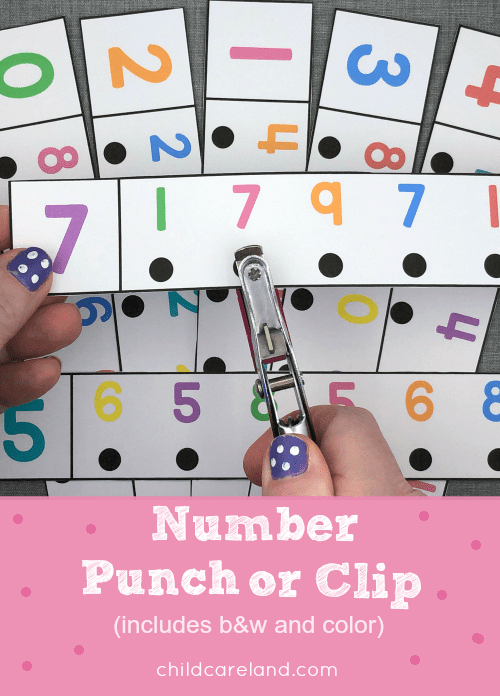
Teach children number sense and fine motor skills at the same time. The kids will love using the hole punch in this activity and will improve their number sense at the same time.
31. Teach with centers
Teaching with centers is one of the easiest ways to work through your curriculum while teaching kindergarten. And kids love them! Check out our kindergarten literacy centers for more ideas.
32. Get the wiggles out
Incorporating brain breaks will help all of your students when they just need a break from learning!
33. Give your kids visual cues to help them follow your directions
“I have my kids line up on numbers. They stay on the same number all year. This saves so much time. We can line up in less than 15 seconds. Their toes touch the number but don’t cover it, so I can see it.” —Debbie N.
34. Keep little fingers cleaner with this trick
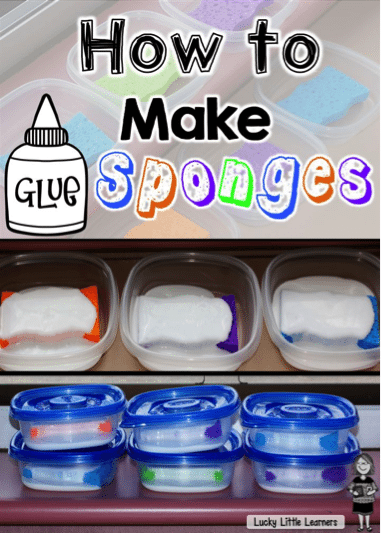
“Glue sponges! There are several videos online for making them. So awesome to not deal with the bottle-of-glue mess or those littles who can’t close the bottle and spill glue in their supplies!” —Anita D.
Learn how to make glue sponges from Lucky Little Learners.
35. Use a washable stuffed animal as a class pet
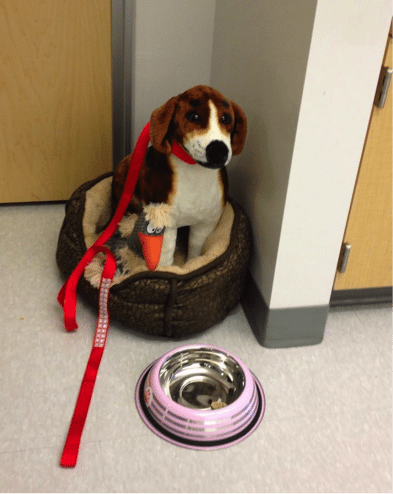
Low maintenance (essential for teaching kindergarten), high fun! Kids will love taking turns bringing the “class pet” home to care for it over the weekend. Check out this classroom pet from A First for Everything.
36. Routine, routine, routine
Veterans who’ve been teaching kindergarten for years said this again and again on our Helpline: Probably more than any other age group in elementary school, kindergartners thrive on their routine. “Plan fun and easy activities for the first week so you can keep focused on the routine.” —Sarah S.
37. Use anchor charts
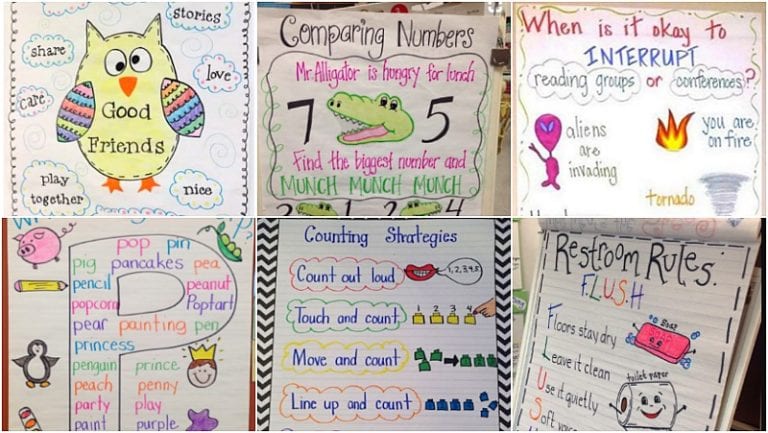
Creating anchor charts for and with your students helps them learn and remember lessons about topics like friendship, shapes, counting, letters, beginning writing, and more.
Curriculum Tips and Tricks
38. Add in SEL to your routines
Helping children manage their emotions is essential in classrooms. One way to do this is by incorporating SEL books for kids. Start social-emotional learning with your morning meeting time to have it as part of your daily routine.
39. Try daily STEM challenges
These STEM challenges are designed with your kinders in mind. Try one each day or each week to get their minds thinking outside the box.
40. Use these strategies for writing instruction
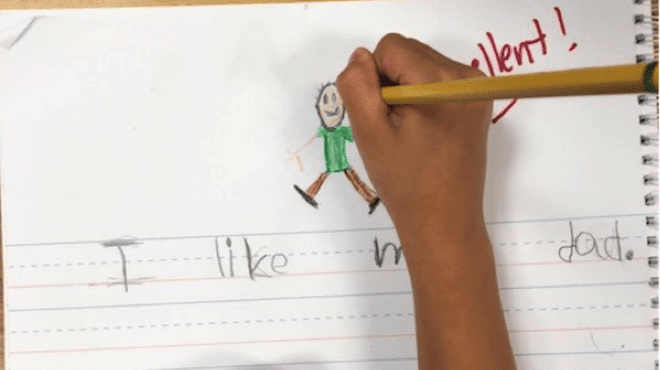
From invented spelling to punctuation and using words in context, these tips will help your newbie writers catch on quickly.
41. Use hands-on alphabet activities
Go on a scavenger hunt, play with shaving cream, and much more. These alphabet activities are perfect for your kindergarten class.
42. Incorporate daily writing prompts
We’ve gathered writing prompts that you can download and use to get your kinders practicing their writing skills.
43. Use “space people” to help your beginning writers learn to use spaces between words
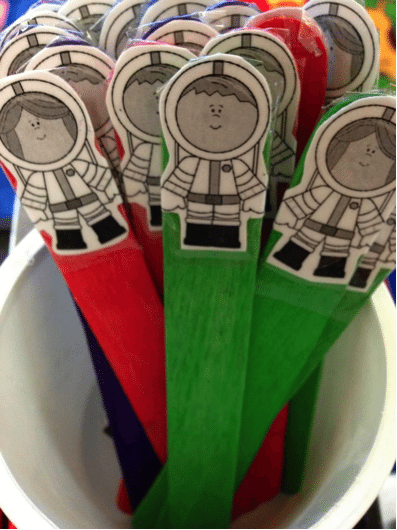
Put an astronaut stick down when you get to the end of a word so students know where to start the next one!
44. Put sight words front and center

Keep track of important sight words in fun ways and keep them visually front and center like this growing word-a-pillar.
45. Teach word families
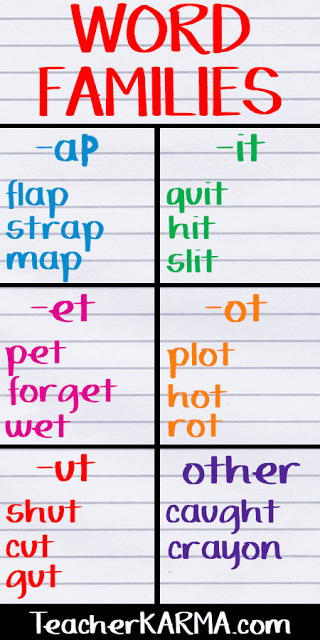
This method is tried-and-true among kindergarten teachers. Check out Teacher Karma’s seven simple steps for using word families to teach reading.
46. Bring technology (in small doses) into the classroom
Check out our guide to teaching kindergarten online for tips on using technology when teaching kindergarten.
47. Sneak in the learning with games
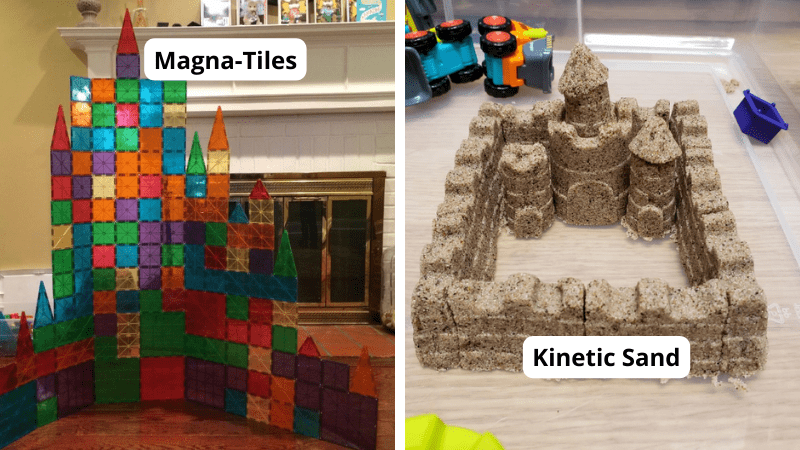
“I like playing ‘I have, who has’ games. I take their picture on the first day of school and create an ‘I have who has’ game with their photos. It’s a great way for them to learn names, plus I use their picture for everything.” —Lisa G.
Check out our favorite educational toys and games for kindergarten.
48. Organize your instruction around themes
When you structure your lessons thematically, you provide your kids with more “hooks” for learning. Check out this blog by Fun-a-Day for some great ideas.
49. Find hands-on ways to teach number sense
Number sense is key in kindergarten. You’ll want to cover it again and again. Here are some ideas for teaching number sense.
50. Incorporate kindergarten math games
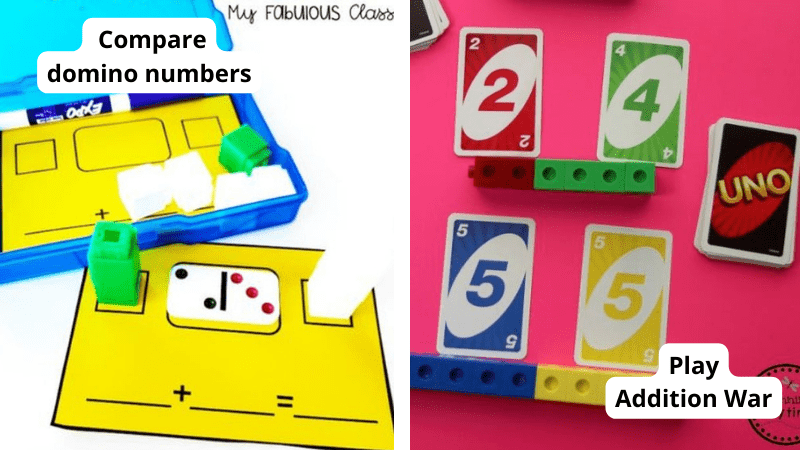
Kindergarten offers so many opportunities to help students find learning truly enjoyable. These kindergarten math games teach concepts in fun and meaningful ways.
51. Watch math videos
Making math more engaging for kids can be difficult. But teaching math will be anything but boring when you introduce students to some of our favorite subtraction and addition videos on YouTube.
52. Begin teaching shapes
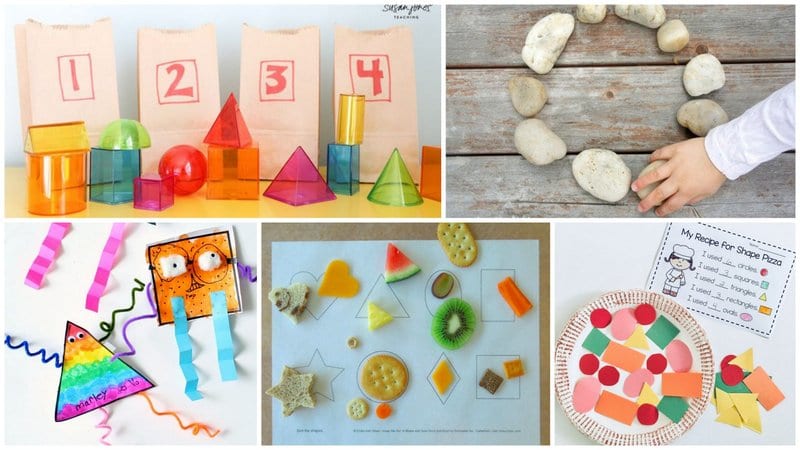
Learning shapes is one of the earliest concepts we teach kids. Shapes ready them for geometry in the years ahead, but it’s also an important skill for learning how to write and draw. Get started with these activities.
53. Count the days of school and celebrate when you reach 100
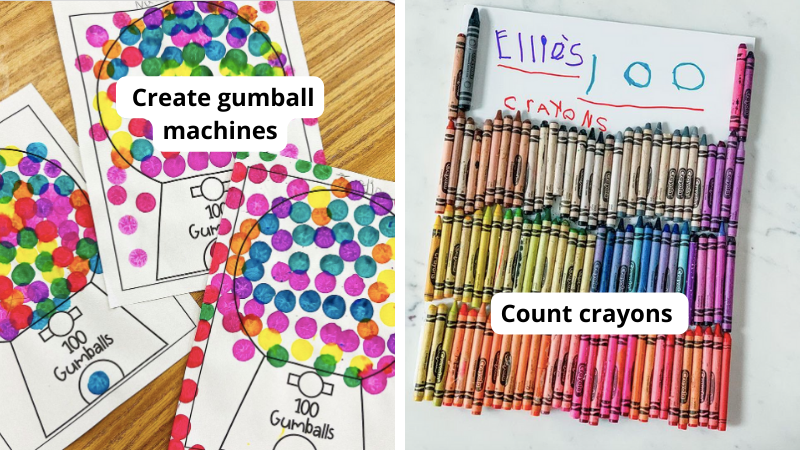
There are so many different fun ways to celebrate the 100th day of school. We’ve got a whole collection of activities for you!
54. Use music for everything
“Music is needed and is a good way to transition. Find a welcome song and an afternoon song (can be the same tune with different words) to start and close your day. It makes a world of difference.” —Anne H.
55. Plan lessons with AI
Stumped on an idea for creating a lesson? Try using AI to help you plan your lessons. ChatGPT is one way to add in some creativity and ideas you may not have thought of before. There are also alternatives you can try when it comes to using AI in the classroom.
56. Use journals
Have a routine with journals. This can be a daily freewriting journal, math journals with prompts, science journals, or even a fun twist on sight words with a journal.
Check out these ideas for kindergarten writing prompts.
57. Keep activity sticks on hand so you never have an awkward “What do I do with them now?” moment
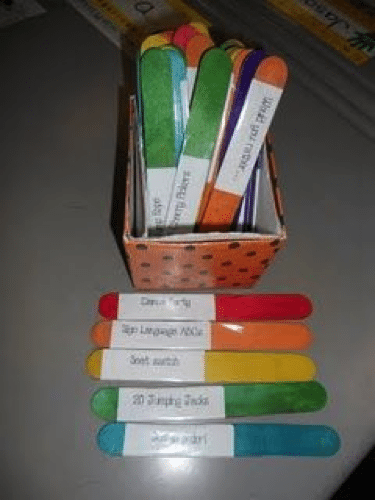
One of the most repeated pieces of advice in our WeAreTeachers Helpline Facebook group about teaching kindergarten is that you should always overplan for this age group. These activity sticks from Keep Calm and Teach On are a fantastic safety net when you suddenly find that your lesson went twice as fast as you expected.
58. Go on a field trip
Kinders are a wild bunch, and taking them anywhere might seem daunting. But field trips provide kids with the kind of real-world learning that really sticks with them. These kindergarten field trips will keep your young students interested and (mostly) out of trouble. We even have virtual options!
59. Incorporate LOTS of art
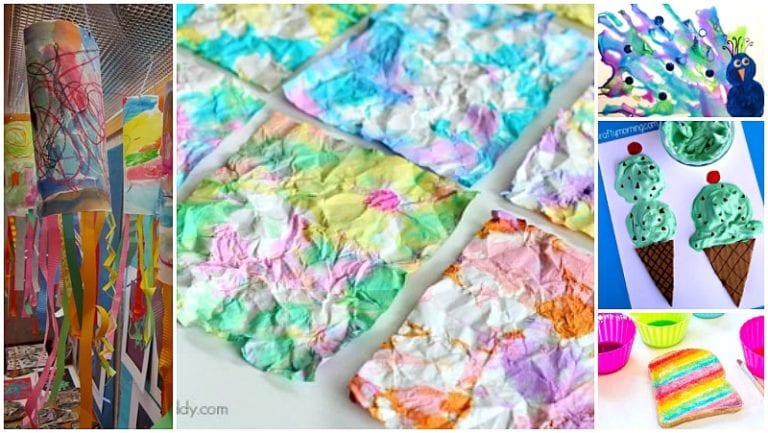
Hands-on learning is best for little ones. We’ve gathered our favorite fun and interesting projects.
60. Tailor your science to their needs
These fun and free science activities were put together just for kindergarten students. They’ll learn how the world works through play and experiments.
Taking Care of You
61. Connect with a community of educators outside of your own school
Teaching is hard! Join our WeAreTeachers HELPLINE Facebook group and connect with other teachers to talk about challenges and triumphs and ask questions.
62. Follow kindergarten teachers and bloggers
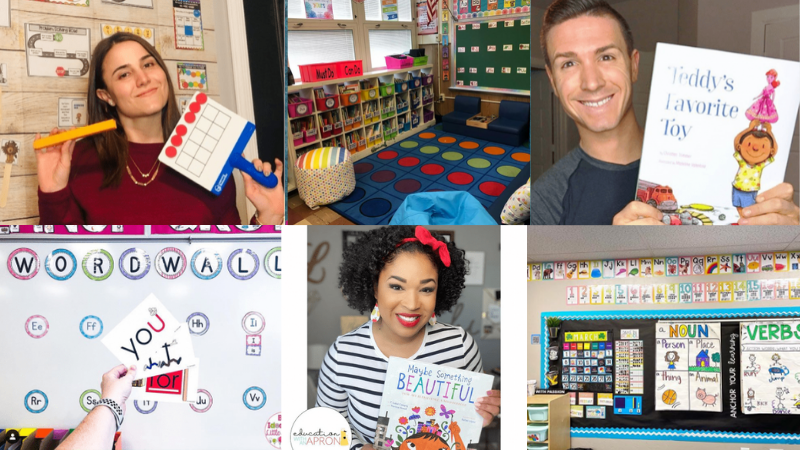
Keep a pulse on what’s happening in your grade level with our favorite teachers sharing about topics ranging from crafts to addressing important multicultural issues.
63. Laugh with your kids
Kindergartners love to laugh as much as the rest of us! These funny books will add some humor and levity to your day. Plus, check out these jokes just for kindergartners!
64. Keep a “sub tub” on hand for those days when you just can’t make it into school
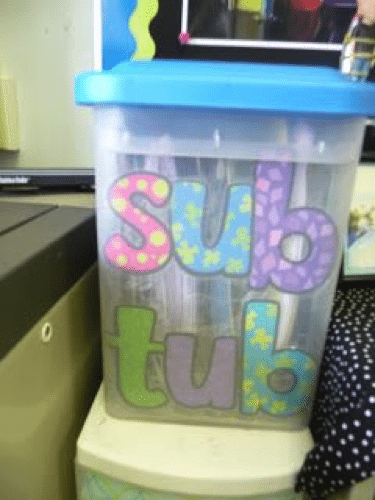
Fill your sub tub with all the lessons and activities your sub will need in case you have an unexpected absence.
65. Reward the small things
We most often celebrate large accomplishments, but it’s also OK to celebrate the small things. Did you turn in report card grades on time? Celebrate! Did you do attendance for an entire week without having to be reminded? Celebrate! Take a moment and write down simple tasks that you can celebrate. Small wins also matter and can benefit your mental health.
66. Plan fun annual events for your students and their families
Whether it’s Cupcakes With Caregivers, a fall feast, or a spring BBQ, kindergartners love traditions. And they love to include their families. Here are some tips on making these events inclusive for all your students.
67. Take care of yourself
Teaching kindergarten requires a different kind of energy. Eat well and try to get an extra hour of sleep if you can. “When I switched from teaching second grade to teaching kindergarten, I was exhausted for the first two months. It’s physically taxing.” —Karen E.
Here are some teacher self-care ideas to consider.
68. And last but certainly not least, give them lots (and lots) of time to play
“Playtime teaches kids how to get along with others so that they can effectively learn in a classroom. It’s so important, especially in kindergarten.” —Michelle S.
Check out our educational toys for kindergarten and why dolls belong in the classroom!
We’d love to hear your favorite tips and tricks for teaching kindergarten! Come and share in our WeAreTeachers HELPLINE group on Facebook.
Plus, check out our guide to the kindergarten classroom.
